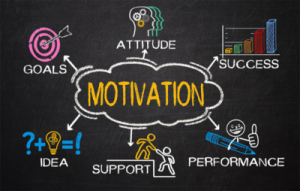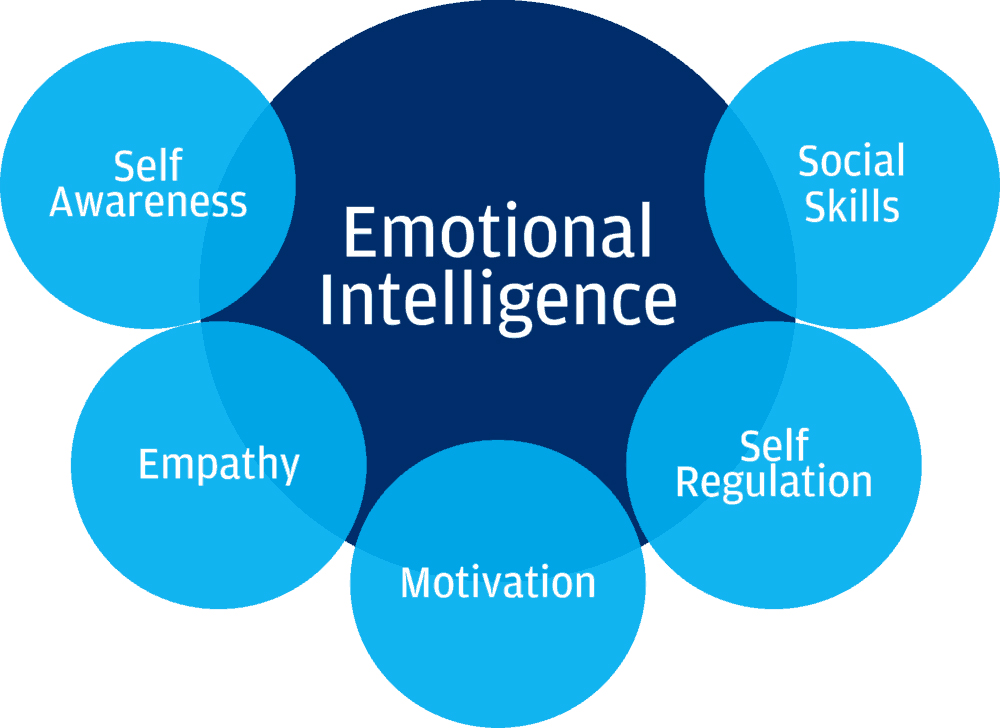Contents
- 1 What Is Emotional Intelligence?
- 1.1 History Of Emotional Intelligence
- 1.2 Key Components Of Emotional Intelligence
- 1.3 Significance Of Emotional Intelligence
- 1.4 How To Measure Emotional Intelligence?
- 1.5 Sample Questions In An Emotional Intelligence Test
- 1.6 Benefits Of Emotional Intelligence Test
- 1.7 5 Things Emotionally Intelligent People Do
- 1.8 How to improve Emotional Intelligence?
- 2 Conclusion
- 3 A Word From Therapy Mantra
What Is Emotional Intelligence?

Emotional intelligence is the ability to understand and manage your emotions. This means that you know what to do when you are stressed, how to prevent conflicts, and how to communicate properly. You also know how other people feel so you can empathize with them. Some people may be born with the ability to understand and control their emotions, but others may have to learn it. It is also possible to learn and get better at this. Emotions are an important part of human life. It is very important to be able to recognize, manage, and understand emotions both for yourself and for other people. There is an emotional intelligence test to assess your emotional intelligence.
Recognizing and managing emotions can be extremely beneficial in improving interpersonal communication and relationships. People with a lot of emotional intelligence can control their emotions and also influence the emotions of other people. Emotional intelligence is also very important to have if you want to be a leader. It helps you make good decisions and it helps you succeed.
Finally, let us take a look at the history of this remarkable concept of emotional intelligence.
History Of Emotional Intelligence
The term ‘Emotional Intelligence’ wasn’t used colloquially until around 1990. Emotional intelligence was first introduced in a doctoral dissertation by Wayne Payne. In 1990, two psychologists from Yale University wrote an article about how you can have good feelings. It was called “Emotional Intelligence”. An ability to monitor one’s own and others’ emotions, to discriminate among them, and to use the information to guide one’s thinking and actions.
Key Components Of Emotional Intelligence
Daniel Goleman wrote this book. He is an author and psychologist. The book is about emotional intelligence. It has five main parts: self-awareness, self-regulation, motivation, empathy, and social skills. Let’s understand these crucial components in depth.
Self-awareness

Self-awareness is knowing your own feelings and understanding how they might affect your thoughts and behavior. Being aware of yourself also includes awareness about your weaknesses as well as strengths. Self-confidence is the direct result of knowing who you are and accepting yourself for it.
Self-regulation
Expressing your emotions appropriately and controlling your emotions from negatively affecting your behavior is self-regulation. Emotional intelligence enables you to manage your own emotions effectively. Self-regulation means handling your emotions in a positive way. This includes feeling anger, sadness, and frustration in a constructive way. This ability also enables you to take responsibility for your actions.
Motivation

Humans need the motivation to achieve a goal. Extrinsic motivation is when you seek motivation from external sources like working to earn money or studying for good grades. Intrinsic motivation means you want to do something because it is fun and interesting. This is like studying a subject because you want to, not because someone tells you that it will be good for your future or that you have to do it. Emotional intelligence emphasizes intrinsic motivation which makes you do things and achieve goals to fulfill your inner needs and passion. It results in an increased need for achievement and taking initiative.
Empathy
Being able to feel what other people may be feeling and understand where they may be coming from is called empathy. When you sense how someone is feeling, empathy makes all the difference. If you have empathy, you will be much more considerate towards other people’s feelings and well-being. Empathy allows you to see things from other people’s perspectives and ‘walk a mile in their shoes, so to say.
Social Skills

Social interaction is another crucial domain of emotional intelligence. Strong social skills allow you to build strong relationships and connections. It is when you use your understanding of your own emotions and the emotions of other people in your daily communication and interactions. Social skills also involve active listening, verbal and non-verbal communication skills.
Significance Of Emotional Intelligence
You don’t have to be the smartest person in the room to be influential. Skills like emotional intelligence are very important in the 21st century. This is because they are very useful in many different areas of life. Some people are academically brilliant but have an unsatisfactory social and professional life. The reason lies in the lack of real-life skills to manage stress, build relationships, etc. Your I.Q. alone cannot guarantee you a happy and fulfilling life. You need more than just academic intelligence to do well in a prestigious college or company. You need to be smart and have the ability to solve problems.
We spend a majority of our day dealing with human beings and with human beings come complex human emotions. Emotions are things that happen in your body. They also happen when you’re in school or at work. They can make you smarter or not as smart depending on how they affect your performance. In the workplace, some people might think that you should leave your emotions at the door. But can you really do this? An emotion is something you feel inside and it can make you feel better or worse. Pretending to not have any emotions is not the solution and will bring more harm than good. But having people around who understand your emotions and can help you solve problems can be very helpful.
Emotionally intelligent students, teachers, managers, employees, etc. can build a healthier environment to work or study. People with emotional intelligence can adapt to changes easily and they have been shown to be better leaders. As a result, many companies these days use emotional intelligence tests as part of the screening process for recruiting employees.
How To Measure Emotional Intelligence?
The fascinating concept of emotional intelligence has created a lot of buzzes. Emotional intelligence seems to be a research-backed construct with a lot of advantages. But is there a way to measure your emotional intelligence?
There most certainly is, emotional intelligence can be learned as well as measured.
There are quite a few methods to measure emotional intelligence or emotional quotient (E.Q.).
Identifying emotions by facial expressions
This method tells you about the person’s emotions. It uses a person’s face or a picture. For example, you might be asked to rate the degree to which an emotion is expressed in a given photo or by a person.
Bar-On Emotional Quotient Inventory
It consists of five dimensions which further have different subscales. The five dimensions are interpersonal intelligence, intrapersonal intelligence, adaptability, stress management, and general mood. This inventory includes questions like-

- It’s fairly easy for me to express my feelings.
- It’s hard for me to say ‘no’ when I want to.
- I’m happy with the type of person I am.
- I try to make my life as meaningful as I can.
- I’m more of a follower than a leader.
- Also, I’m sensitive to the feelings of others.
- I’m a fairly cheerful person.
- Others find it hard to depend on me.
- My approach in overcoming difficulties is to move step by step.
- It’s hard for me to understand the way I feel.
- It’s difficult for me to change my opinion about things.
- I can handle stress without getting too nervous.
- When I start talking, it is hard to stop.
- It’s hard for me to enjoy life.
- I believe that I can stay on top of tough situations.
Hence, there are 133 questions of this type in this inventory. Participants can score themselves on a scale of 1-5, where 1 means, not true and 5 means, true.
Emotional Maturity Scale
The Emotional Maturity Scale was created by Singh and Bhargava (1991). This self-report tool comprises 48 items, which measure five different dimensions namely;
- Emotional instability
- Emotional regression
- Social maladjustment
- Personality disintegration
- Lack of independence
The responses by the participants are recorded on a 5-point scale which ranges from ‘Never (1) to Always (5).’ Higher scores indicate lower levels of emotional maturity while the lower score can be the indicator of greater emotional maturity.
Sample Questions In An Emotional Intelligence Test
When people are angry, I feel afraid.
- Yes
- No
I think it is safer to trust someone than to be suspicious.
- Yes
- No
I can’t stand hearing people cry.
- Yes
- No
It does not take much to get me upset.
- Yes
- No
I believe that children should be kept clean and neat at all times.
- Yes
- No
On the whole, I am satisfied with myself these days.
- Yes
- No
I can go out of my way to help others.
- Yes
- No
I have often been told that I should try to be more tactful.
- Yes
- No
If I hear a siren, it makes me tense.
- Yes
- No
It would bother me if someone took advantage of my being in a hurry.
- Yes
- No
When things don’t work out the way I had planned them, they get me annoyed.
- Yes
- No
I like to think of myself as a pretty warm person.
- Yes
- No
People make me nervous until I know them well.
- Yes
- No
It is easy for me to get emotionally close to someone.
- Yes
- No
When I am feeling at loose ends, it seems like I can’t shake off the blues.
- Yes
- No
I often feel that people are laughing at me behind my back.
- Yes
- No
I can’t help giving people the impression that I am glib and superficial.
- Yes
- No
Before I do anything, I consult with my best friend or someone like him/her.
- Yes
- No
When something unpleasant happens, I usually feel resentful.
- Yes
- No
I don’t mind making a fool of myself when everyone else is willing to take a chance too.
- Yes
- No
Benefits Of Emotional Intelligence Test

Being able to understand and manage emotions is a crucial ability especially in today’s world. Making decisions can help people make better decisions. Getting along with other people can help prevent conflicts from escalating. Connecting with sales prospects can help you make more sales. If you are trying to sell yourself or impress someone, then an emotional intelligence test can be helpful.
Making better decisions in life
Managing your feelings is important when you are talking to people. You should be ready for what they say. Being able to communicate well helps you get your message across effectively. If you are going for a job interview, taking an emotional intelligence test can help you ace the interview.
Helping prevent conflicts from escalating
Emotional intelligence also affects how well you are able to get along with other people. If you have trouble getting along with others, it may create problems at work or in your personal relationships. You should be able to get along well with family members, friends, or coworkers. Knowing how to better manage your feelings will help you get along with others.
Helping you make more sales
Selling yourself well is important when trying to impress someone. If you are not able to express yourself well, then it may have an adverse effect on the other person’s impression of you. When you are trying to make a sale, communicating well with the customer is one way for you to establish rapport. You may need an emotional intelligence test if you want to win more sales.
Understanding your behavior
People can be quite complicated sometimes due to the various experiences and emotions that they carry with them. In some cases, people confuse one emotion with another. If you want to improve your emotional intelligence, then it is important for others to know the reasons behind your actions. Getting feedback from others can help them understand how they react to different behaviors.
Getting a job test may be helpful when looking for a new job
Some people have a hard time finding a job because of various reasons. When you take an emotional intelligence test, it can help improve your chances of getting a job. If you have similar interests with the interviewer, then there is a good chance that you will get the job.
5 Things Emotionally Intelligent People Do
- People with emotional intelligence are good at understanding, recognizing, and managing the emotions of themselves and others. They observe the emotions and reflect on them appropriately.
- People who can control their feelings are in charge of their thoughts and behavior. It gives them the power to make effective and rational decisions.
- Emotionally intelligent people show empathy. They have the ability to know what someone else will think about a certain thing if they are in that person’s position.
- Delivering feedback is an essential factor when you’re working with a team but it is not always a pleasant thing to do. Negative feedback tends to hurt the feelings of your colleagues and your team members but is necessary nonetheless. Emotionally intelligent people use constructive feedback instead of criticism, which again proves their leadership prowess.
- They are assertive and not aggressive. Assertiveness means expressing your emotions, perceptions, and thoughts in a non-destructive way. It means to treat yourself and other people with the same respect.
How to improve Emotional Intelligence?
Take a pause and think before reacting to a conflict
Having self-awareness of your emotions is the key to being able to manage them appropriately. If you are overwhelmed, take a break and give yourself time to calm down.
Find out what triggers your feelings
Emotional intelligence is all about understanding yourself better. When you know what irritates you or startles you, then it’s easier for you to plan your behavior accordingly. When you know what gets to you, then it becomes easier to avoid them together.
Learn how to control your emotions
You can often make better decisions when you have self-control. This means that you don’t do things because of a feeling. Try exercising by keeping your mouth shut when you see someone doing something stupid or something that irritates you.
Accept your feelings and understand them
Your feelings and emotions can be used as guides so it’s important to accept them first. When you don’t let the negative emotions control you, then you’re free to do anything.
Manage how other people affect you
It helps to keep a cool head when dealing with different people. Sometimes, you might find yourself reacting to someone else’s behavior. Remember that it is their problem, not yours.
Everyone responds differently to external stimuli
In the 21st century, the workplace has become more complex. People who manage their emotions well often have an advantage when it comes to getting a promotion or earning more money. If you’re wondering how far your emotional intelligence can take you, then it will depend on your goals.
Keep an optimistic outlook
Optimism in life, in general, helps people have a wakeful sleep. They are happier because they know that even if bad things happen, they will be able to resolve them at some point.
Conclusion
The Emotional Intelligence Test can help you figure out how good you are in social situations, how well you handle your own emotions, and how much empathy you have. Hence, this test is a good way to learn more about yourself so that you can better connect with other people. Would an emotional intelligence assessment be helpful for understanding your communication style? Let us know! We are experts at helping companies use these tests to hire new employees or train their current employees.
A Word From Therapy Mantra
Your mental health — Your psychological, emotional, and social well-being — has an impact on every aspect of your life. Positive mental health essentially allows you to effectively deal with life’s everyday challenges.
At TherapyMantra, we have a team of therapists who provide affordable online therapy to assist you with issues such as depression, anxiety, stress, workplace Issues, addiction, relationship, OCD, LGBTQ, and PTSD. You can book a free therapy or download our free Android or iOS app.


